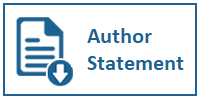THE AUDITOR'S RATIONAL CHOICE OF THE AUDITOR BOARD OF THE REPUBLIC OF INDONESIA IN EXAMINING GOVERNMENT FINANCIAL REPORTS
DOI:
https://doi.org/10.31937/akuntansi.v15i2.3390Abstract
Abstract - This research aims to determine the dilemma of rational choice of auditors from the Audit Board of The Republic of Indonesia in examining government financial reports during the Covid-19 Pandemic. This research using phenomenological approach with interpretive paradigm. Methods of qualitative research were applied in this research. The method used in this research is the phenomenological approach. The subjects of this study serving as informants are those who hold functional positions as auditors within the Audit Board of the Republic of Indonesia. The findings of this study suggest that the challenge faced by the auditors of The Audit Board of The Republic of Indonesia during the Covid-19 outbreak is the auditor's dilemma when evaluating financial accounts. Limited engagement with other people is one of the challenges faced by auditors, making it challenging to gather information or data that ought to be simple. The practice of Working from Home (WFH) could frequently lead to misunderstandings with auditors. This is due to the fact that there is not any face-to-face direct communication between colleagues. Conclusion: The auditors of the Audit Board of The Republic of Indonesia always attempt to make decisions based on careful consideration and sensible choices in order to accomplish the audit objectives when performing their responsibilities. Additionally, there are concerns that emerge based on an auditor's feelings.
Keywords: Auditor; Covid-19; Rational Choice Dilemma; The Auditor Board of the Republic of Indonesia
Downloads
Downloads
Published
How to Cite
Issue
Section
License
Authors retain copyright and grant the journal right of first publication with the work simultaneously licensed under a Creative Commons Attribution-ShareAlike International License (CC-BY-SA 4.0) that allows others to share the work with an acknowledgement of the work's authorship and initial publication in this journal.
Authors are able to enter into separate, additional contractual arrangements for the non-exclusive distribution of the journal's published version of the work (e.g., post it to an institutional repository or publish it in a book), with an acknowledgement of its initial publication in this journal.
















